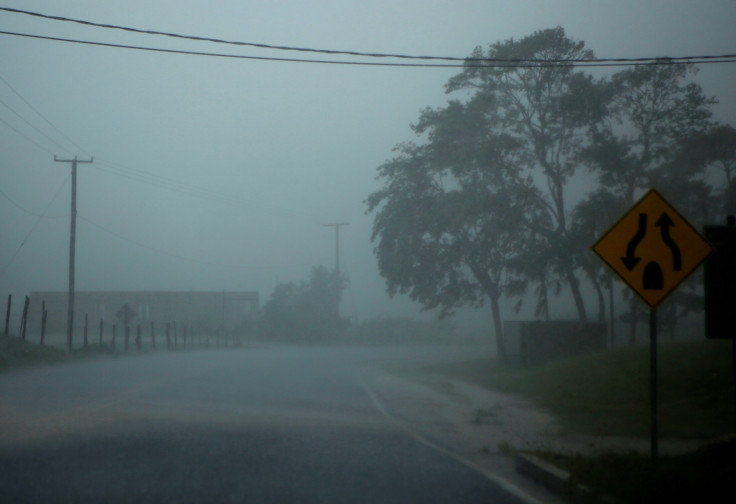Hurricane Earl approaches Caribbean nation of Belize
From Belize it is expected to head over to Mexico's southern Yucatan peninsula.

Hurricane Earl is headed to the Caribbean country of Belize, after drenching Honduras with torrential rains. The category 1 storm, with maximum sustained winds of 75mph (120km/h) is expected to make landfall early on Thursday (4 August).
As the country is being lashed with strong storm winds, around 400 people were evacuated from Belize's northern islands. The US National Hurricane Centre (NHC) said on Wednesday that the storm would hit Belize within hours, after which it would head towards Mexico's southern Yucatan peninsula or the north of Guatemala.
Officials urged residents of Belize City and the surrounding coastal communities to move inland and take advantage of a network of storm shelters. Philip Willoughby, a city official in charge of emergency management, told Reuters over phone that around 1,000 people were taking refuge in the shelters of the city. In Honduras, the government said at least 150 people were evacuated.
Authorities also ordered the closure of the international airport of the city; archaeological reserves and national parks were also closed.
In La Mosquitia, the eastern part of the country, 88 shipwrecked fishermen were rescued while two are still missing, deputy chief of emergency agency Copeco, Luis Florentino, told Reuters. The storm is expected to weaken as it reaches the coast and moves inland.
Tormenta tropical Earl llega a @BelmopanOnline #Belize @EmbaMexBee pic.twitter.com/CL56Mr2MsH
— carlos quesnel (@quesnelc) August 3, 2016
Meanwhile, Belize's National Emergency Management Organisation, issued a warning that the heavy rains could lead to flash floods, mud slides and create a storm surge along the shores. It has also said there are chances of trees being blown down, electricity cuts and damage to houses and buildings, which could be hit by flying objects.
Officials in Mexico have said that the southern states of Campeche, Quintana Roo, Tabasco and Yucatan could be affected and have issued alerts. The NHC said, "Isolated maximum amounts of 18 inches are possible in Mexico and Belize."
© Copyright IBTimes 2025. All rights reserved.





















